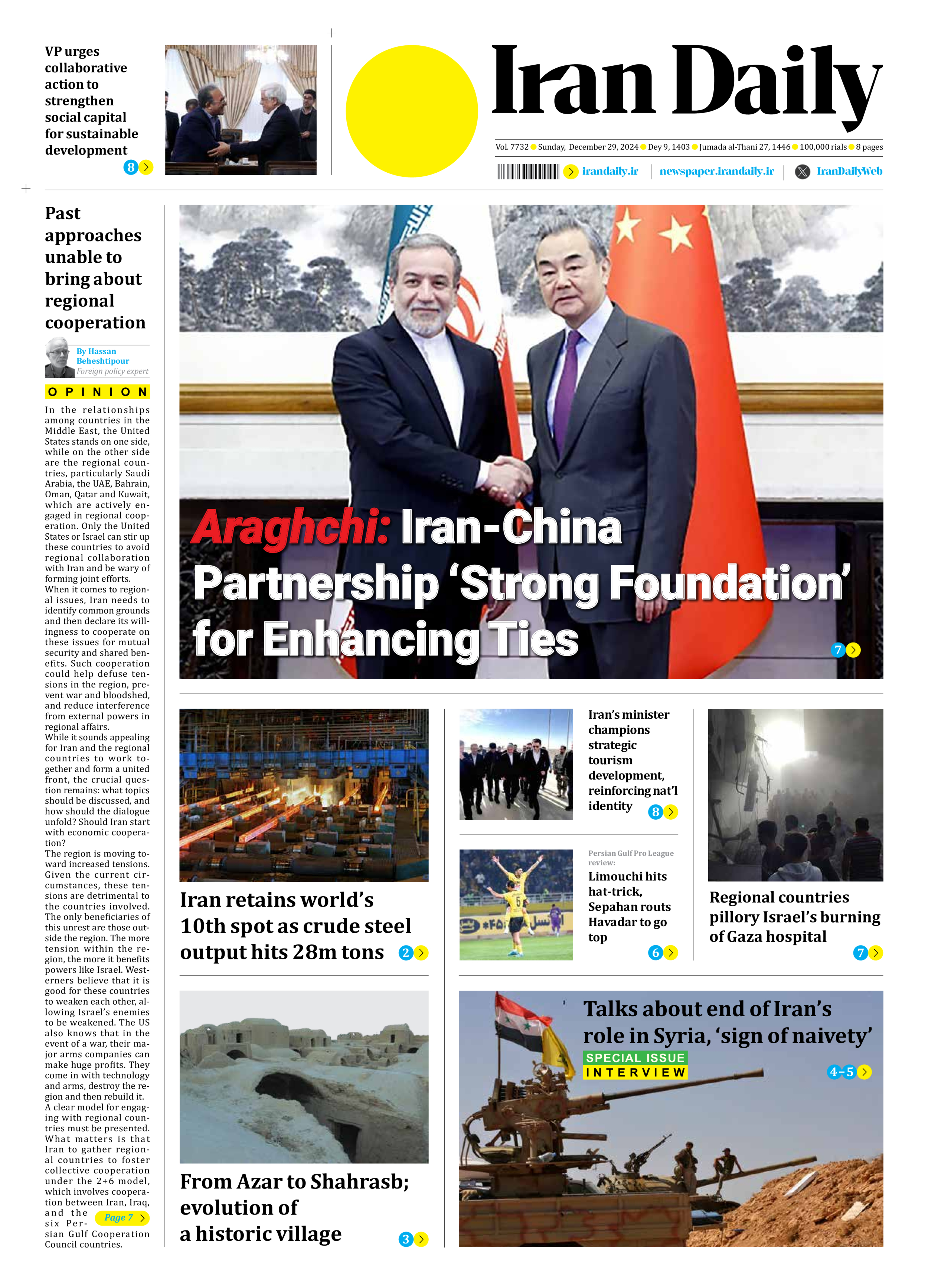
Past approaches unable to bring about regional cooperation
By Hassan
Beheshtipour
Foreign policy expert
In the relationships among countries in the Middle East, the United States stands on one side, while on the other side are the regional countries, particularly Saudi Arabia, the UAE, Bahrain, Oman, Qatar and Kuwait, which are actively engaged in regional cooperation. Only the United States or Israel can stir up these countries to avoid regional collaboration with Iran and be wary of forming joint efforts.
When it comes to regional issues, Iran needs to identify common grounds and then declare its willingness to cooperate on these issues for mutual security and shared benefits. Such cooperation could help defuse tensions in the region, prevent war and bloodshed, and reduce interference from external powers in regional affairs.
While it sounds appealing for Iran and the regional countries to work together and form a united front, the crucial question remains: what topics should be discussed, and how should the dialogue unfold? Should Iran start with economic cooperation?
The region is moving toward increased tensions. Given the current circumstances, these tensions are detrimental to the countries involved. The only beneficiaries of this unrest are those outside the region. The more tension within the region, the more it benefits powers like Israel. Westerners believe that it is good for these countries to weaken each other, allowing Israel’s enemies to be weakened. The US also knows that in the event of a war, their major arms companies can make huge profits. They come in with technology and arms, destroy the region and then rebuild it.
A clear model for engaging with regional countries must be presented. What matters is that Iran to gather regional countries to foster collective cooperation under the 2+6 model, which involves cooperation between Iran, Iraq, and the six Persian Gulf Cooperation Council countries.
Page 7







